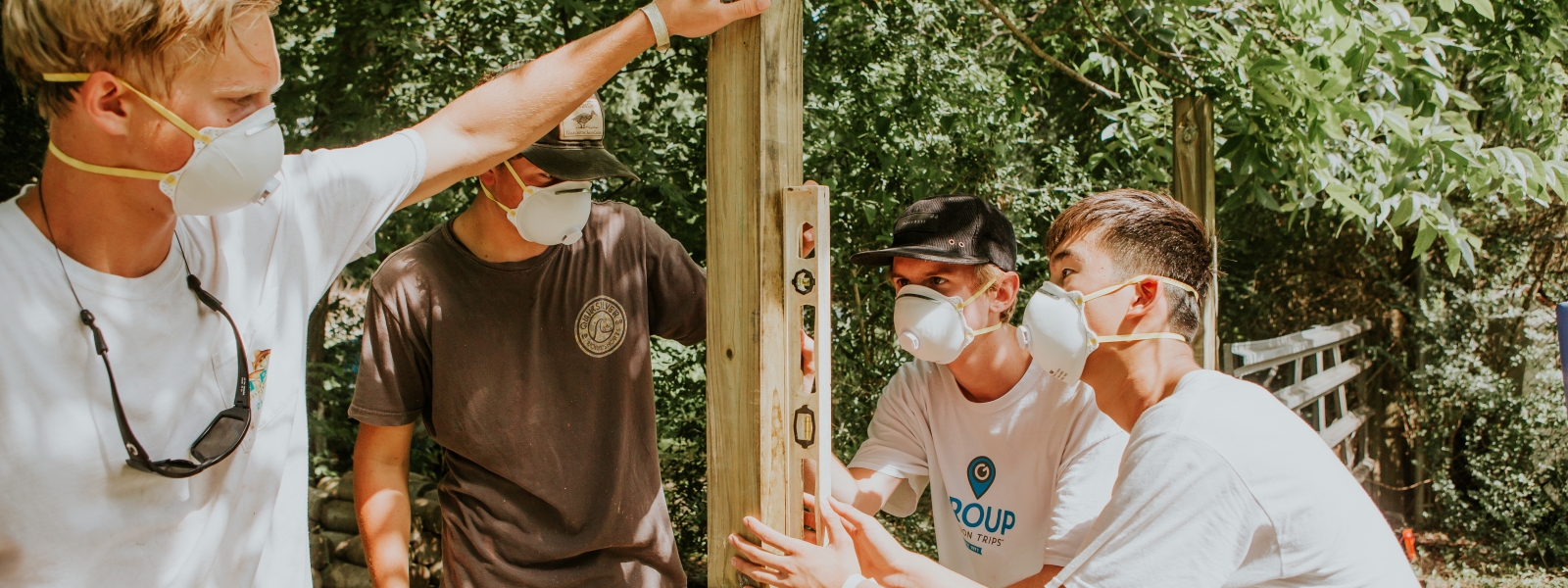Mission Trips Provide Much More Than Spiritual Growth

God makes many amazing things happen on mission trips. There are so many teachable moments and lifelong lessons students and adults can take away from a mission trip. So, first, let’s be honest. Everyone wants their students and adult leaders to grow spiritually and to attain a greater strength and knowledge in their walk with Jesus. For the purpose of this article, we will focus on the top three things students can get out of a mission trip assuming that spiritual maturity is already a given #1 priority. 1. Students take away a better understanding of their place in the world. Most students do not understand how good they really have it and how big and unique the world is. After each mission trip, I have several students state that one of their biggest takeaways is realizing how blessed they are. They certainly see some form of poverty as they serve. But more than that, they often see broken family dynamics, dysfunctional families, or lack of family direction, and all of a sudden, being interrupted in their Fortnite game by mom to do chores doesn’t seem so evil any more. They begin to appreciate the things they have and the dysfunction they may not have in their lives. The mission trip experience opens their eyes to their own world and turns it upside down. They also get a taste of different cultures and parts of the world. Some of these students have barely been out of their own home state, so to take them hundreds of miles away and allow them to experience a different part of the country is a pretty cool thing to see! There are so many opportunities for us as leaders to have “big moment” conversations about the world we live in and how Jesus wants us to treat others and how Jesus would treat “the least of these.” 2. Students have an opportunity to develop leadership skills. I try to give most students an extra “job” on each mission trip. It could be as simple as making sure the van windows are hand-washed at every gas stop or big things like assigning our older students to be Junior Leaders and giving them real weighty responsibility. No matter if the tasks are big or small this gives your youth ownership of the trip and allows for high praise or teachable moments. It’s a win-win for you. One of our biggest tasks is growing leaders in ministry and that never stops for us. As I have grown our program, the underclassmen start to say things like, “I can’t wait to be a junior so I can be a great leader like (so and so)." In the last few years, I have stopped putting age limits and labels on students. If they are faithful and we see leadership potential, we start giving them responsibilities right off the bat. It’s been a game-changer! Students know that if they are engaged in our ministry they will be given real responsibility and ownership of the group. The process has been awesome to watch. 3. Students develop real-life skills. About five years ago I got tired of watching 5 out of every 10 students on a mission trip jam a paintbrush in the paint all the way down past the wood handle, or look at a hammer and have no idea what to do with it. In order to best prepare, we have a two-hour pre-mission trip session centered around how to use tools before we head out on a mission trip. But I also instruct all of our adult leaders to be teachers first, especially on the first 2 or 3 work days. I cannot tell you how many parents have thanked me for teaching their kid life skills that actually helped with projects at home. I’m not going to lie either, it’s helped me a ton, too. I have developed useful life skills that I can use around the house on a daily basis. Mission trips have taught me how to paint properly and quickly, how to spackle a hole, how to roof properly, and so many more skills. It’s something that a future husband or wife of your youth will thank you for later in life! Questions - Think about your group and are any of these three points something you can use in your own mission trip planning and application? - Which students in your youth group can you start praying about giving real leadership responsibilities? - If you already do these things what are ways that you can improve upon them?
